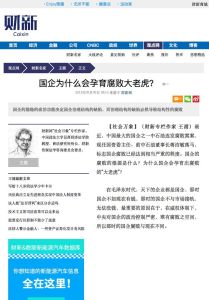
Read or listen offline
Amazon KindleRecommendation
Chinese president Xi Jinping began an extensive anti-graft campaign in 2013. Its motto “killing tigers and swatting flies” communicated that the government would investigate high-ranking government officials (tigers) and local civil servants (flies) alike. So far, the government has looked into hundreds of thousands of civil servants and indicted more than 120 high-ranking officials – including senior officials at China National Petroleum Corporation (PetroChina), one of China’s largest state-owned enterprises (SOEs). Caixin columnist Wang Yong explains why state-owned enterprises are hotbeds for corruption and suggests ways to bring about change. getAbstract recommends this insightful article to anyone interested in the political and economic systems in China.
Summary
About the Author
Caixin columnist Wang Yong is a professor of civil and commercial economic law at the China University of Political Science and Law.





















Comment on this summary